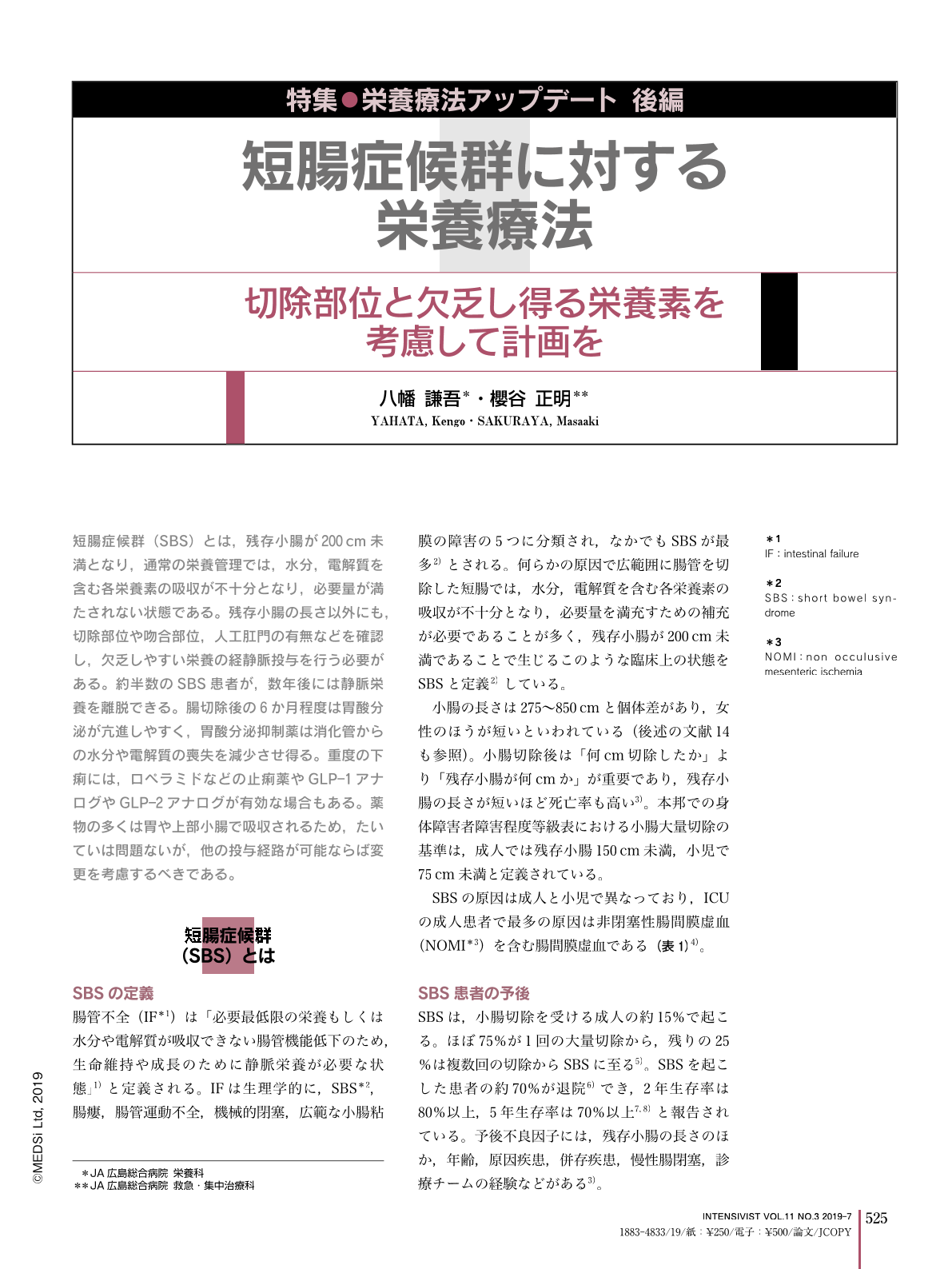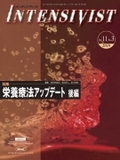Japanese
English
- 有料閲覧
- Abstract 文献概要
- 1ページ目 Look Inside
- 参考文献 Reference
- サイト内被引用 Cited by
短腸症候群(SBS)とは,残存小腸が200cm未満となり,通常の栄養管理では,水分,電解質を含む各栄養素の吸収が不十分となり,必要量が満たされない状態である。残存小腸の長さ以外にも,切除部位や吻合部位,人工肛門の有無などを確認し,欠乏しやすい栄養の経静脈投与を行う必要がある。約半数のSBS患者が,数年後には静脈栄養を離脱できる。腸切除後の6か月程度は胃酸分泌が亢進しやすく,胃酸分泌抑制薬は消化管からの水分や電解質の喪失を減少させ得る。重度の下痢には,ロペラミドなどの止痢薬やGLP-1アナログやGLP-2アナログが有効な場合もある。薬物の多くは胃や上部小腸で吸収されるため,たいていは問題ないが,他の投与経路が可能ならば変更を考慮するべきである。
Short bowel syndrome (SBS) results from surgical resection or congenital malformation of the small intestine characterized by the inability to maintain an adequate nutritional status. Approximately half of patients with SBS can be weaned completely from parenteral nutrition. Predicting malabsorption depends not only on the length of residual small intestine but also on the site of intestinal resection malabsorption. Acid-suppressing medications are useful to reducegastric secretions and loss of enteral fluid. Antidiarrheals,octreotide orglucagon like peptide analogue may be effective,but further evaluation is needed. Patients with SBS may be at risk for impaired absorption of some drugs. Enteric-coated drugs and timed/delayed-release medications should be avoided,and alternative methods for medication delivery should be used if possible.

Copyright © 2019, MEDICAL SCIENCES INTERNATIONAL, LTD. All rights reserved.


